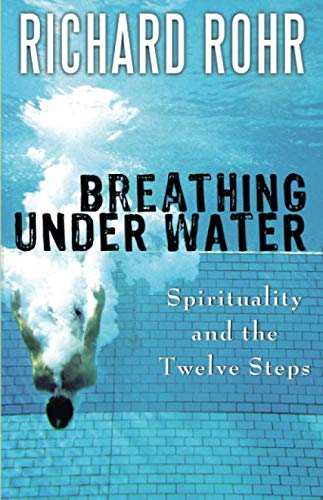Step 10: Continued to take personal inventory and when we were wrong promptly admitted it.
Scripture for Sunday: John 21:15-17
15 When they had finished breakfast, Jesus said to Simon Peter, “Simon son of John, do you love me more than these?” He said to him, “Yes, Lord; you know that I love you.” Jesus said to him, “Feed my lambs.” 16 A second time he said to him, “Simon son of John, do you love me?” He said to him, “Yes, Lord; you know that I love you.” Jesus said to him, “Tend my sheep.” 17 He said to him the third time, “Simon son of John, do you love me?” Peter felt hurt because he said to him the third time, “Do you love me?” And he said to him, “Lord, you know everything; you know that I love you.” Jesus said to him, “Feed my sheep.
Notes on the Text:
There are several post-resurrection appearances in the Gospel of John. This is the third one where seven of the disciples have a vision of Jesus on the Lake of the Sea of Galilee. It was another vivid experience of Jesus. Jesus appeared to the disciples and they had some amazing experiences of his love and care beyond the pain of his death. As part of this time with the disciples, Jesus had a conversation with Peter who had returned to his previous profession as a fisherman. This was a rather quick return to his old life after his hopes for Jesus were crushed by the crucifixion. Jesus asked Peter to return to his call to ministry by continuing the mission of Jesus, the Good Shepherd, by feeding his sheep. Peter’s return to his previous life was being radically transformed by the call of Jesus. Of course, there are other elements of transformation in this story as well. The catch of fish (in the previous verses to our reading for this week) mirrored the abundance of wine in Cana (John 2:1-11) and the twelve baskets of food left over from the feeding of the 5000 (John 6:1-14). Peter had to be reminded once more of the abundance of God at a time when he was experiencing scarcity and fear. The disciples had worked all night but caught nothing. It was a tough moment of insufficiency and emptiness and Jesus transformed it to indicate the internal transformation that needed to happen for Peter and the others.
On the surface, one would think that Jesus was emphasizing his point by repeating his question to Peter three times. But if we remember the story of Peter’s denial of Jesus as recorded in John 18, we know that Peter denied Jesus three times after he was arrested. Peter who was supposed to be one of the leaders of the movement of Jesus cowered when it was most critical to stand with Jesus. He was afraid for his life and decided to do the wrong thing. He denied Jesus not one time, but three times. And this was the time when he was facing Jesus again. Imagine the shame that Peter felt! He knew at that point that he had messed up. He had not had the chance to talk to Jesus about his betrayal. So instead of berating Peter for denying him, Jesus invited him to affirm his love for Jesus, not one time, but three times! This affirmation of love was the fuel that gave Peter what he needed to look at himself honestly with all the good and the bad in order to move forward. This was the transformation Peter needed to reclaim his call for ministry. A consciousness/awareness of love was what Peter needed to heal his fear of being wrong. What Jesus did for Peter was to awaken his soul again in order to go beyond the limits and fears of being right or wrong.
For Reflection:
Step 10 may seem like Step 4 which was, “Made a searching and fearless moral inventory of ourselves.” As a result, the invitation to keep looking at ourselves and to look at our shadow stuff may seem like overkill. If we have done our moral inventory and owned up to our shadow stuff, can’t that be enough once and for all? We only wish we could deal with our shadow (sin, brokenness, ego, fears, anxieties, prejudices, etc.) stuff for a period of time and then be done with it. But if we are honest with ourselves, making mistakes or being wrong will always be part of our human experience. It is not something we could just magically or surgically remove. Our transformation into the likeness of Christ is a life-long process. Step 10 is about being willing to look continually at ourselves honestly and through God’s guidance to be able to deal with our wrongdoing or wrong thinking as they come up instead of waiting for years to deal with them.
While most of us know that we make mistakes and that our perception of reality is often flawed, we still have a deep seated resistance to knowing that we are wrong. We learn from an early age that being wrong is something to be avoided at all costs and so we shun the very thought of it in any specific way. Thus, we often have a closed attitude toward things, people, and facts that contradict our perceptions of reality. We see that in many ways when people talk about their political views. When you make a judgment about something or have an opinion and someone else you know has an opposite opinion, how do you react? People usually judge and label those they disagree with in one of three ways: 1. Ignorant or uninformed 2. Stupid 3. Evil. And as you can imagine all of these ways of thinking lead us to have more problems in the world.
It is astounding how even when faced with facts to contradict our position, we persist even more deeply in them. I often quote Parker Palmer who once wrote, “Confrontation often falls short of transformation.” This does not mean that anything goes. Instead, it is about helping people move above and beyond the limits of being right or wrong (dualistic thinking) to the greater truths of life.
Being grounded in God’s love is what is needed to help us rise above the fray of being right or wrong to activate our higher wisdom and higher knowledge of life and love. When we know that we could be wrong about anything and everything, we can begin to trust a higher wisdom to be our guide. We can see the need to surrender our ego and it needs to let the truth of God guide us in humble and gentle ways. When we can look at our lives through the eye of the soul, we can begin to see as God sees. Imagine if you are free from the need to be right or perfect all the time! What would your life look like? How would you relate to people and events differently?
The beauty of Step 10 is that it has the potential to allow us to unshackle ourselves daily from the things that weigh us down, especially our learned behavior of needing to be right in order to feel good about ourselves. The freedom that comes from knowing that our worth is not determined by how right we are but by how much we love and are loved changes everything. It helps us to see the joy of surprises in life and of how when we put love first things end up working out beyond the limits of our expectations. Peter did not see the resurrection coming! He was locked in the prison of his fears and expectations. He thought that his mission was done and that his calling had ended. Jesus unlocked the door to a new freedom and a new calling for Peter and for us to know that we are loved beyond being right or wrong.
In his book, Breathing Under Water, Richard Rohr writes this about Step 10 and the power of love: “To be fully conscious would be to love everything on some level and in some way -even your mistakes. To love is to fall into full consciousness, which is contemplative, non-dualistic, and including everything -even ‘the last enemy to be destroyed, which is death itself (1 Corinthians 15:26). That is why we must, absolutely must, love!”
Psalm 80 from Psalms for Praying by Nan Merrill:
Eternal Listener, give heed to your people,
You, who are our Guide and our Light!
You, who dwell amidst the angels, shine forth into the heart of all nations!
Enliven your people with compassion that peace and Justice might flourish.
Restore us, O Holy One;
Let your face shine upon us,
Teach us to love.
Gentle Teacher, help us to turn to You in prayer,
Fasting from our negative thoughts.
In your steadfast love, You weep with our tears,
That rise from fear, doubt, and illusion.
You uphold us when we feel the sting of pride,
When our anxiety threatens to paralyze us.
Restore us, O Holy one;
Let your face shine upon us, teach us to love!
You companion us through the wilderness,
through the shadows created by fear.
You plant your Seed into each heart.
You uproot the weeds of our sin,
You cultivate the soil of our goodness.
Truly, in You, we become like a tiny acorn,
holding the secrets of a mighty oak.
You nourish us with the food of Love, with streams of Living Water.
Be our strength as we break down walls that separate and divide;
let not fear pluck away the gifts we would share.
Roll away the stones that become obstacles to growth, to producing a bountiful harvest.
Restore us, O Holy One! Let your face shine upon us, teach us to love!
Receive our gratitude, O Heart of all hearts!
Look upon us and see what Love can do;
Rejoice in the new birth that You create!
Be glad where your Seed has found fertile soil.
How much more the return of one healthy plant than ten thousand useless weeds!
May those who have borne the fruit of love
radiate your Spirit into the world!
May we always walk and co-create with You;
Receive the gratitude of our hearts as we share in the Great Plan!
Restore us, O Holy One!
Let your face shine upon us, teach us to love! Amen.


